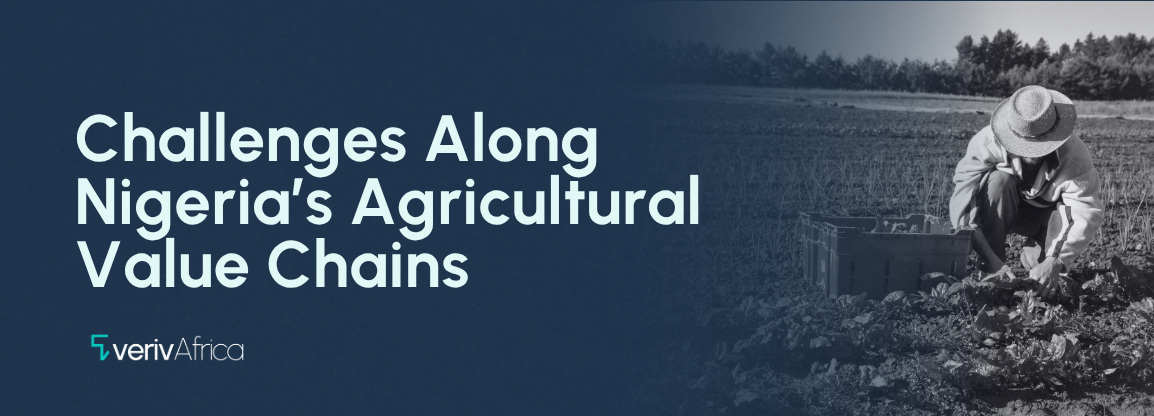The interplay of technology with good and evil, or its neutrality, has been debated for decades. Some experts argue that technology is merely a tool whose impact depends on its use, while others contend that inherent biases in its design challenge the notion of neutrality. For instance, facial recognition software may be biased towards certain demographics due to the data used in its development. Social media platforms' algorithms can be designed to prioritise engagement and advertising revenue over user rights/choice, which can lead to the spread of misinformation and the amplification of echo chambers. Despite ongoing debates, there is a consensus that technology has immense potential to be harnessed for positive societal impact across various sectors of the economy:Education: Technology has the potential to revolutionise the education sector in Nigeria. The development of the internet has been a game-changer for education. It has enabled unprecedented access to information, resources, and opportunities for learning. With the internet, students and teachers can access vast amounts of educational content, including online courses, tutorials, and educational websites, connect with experts and peers from around the world, collaborate and share knowledge with a global audience and participate in online communities and forums. The internet has not only had a profound impact in its own right but has also enabled numerous subsequent innovations that have transformed the education sector, such as simple remote e-learning and teacher training tools, as well as more complex innovations like artificial intelligence and extended reality solutions. In recent years, the global AI in education (AIED) market was valued by the AIPRM report at $2.5 billion as of 2022, with as many as 30 multi-million-dollar-funded AIED corporations. This figure is expected to reach $6 billion by 2025 and $88.2 billion by 2032. According to the same report, 60% of teachers claim to have integrated AI into their daily teaching practices. Another report by Microsoft found that 68% of educators say they have used AI once or twice in their daily teaching practices, while 22% use it daily.
However, students' use of AI tools has received mixed reactions. Some argue that the continuous use of ChatGPT for academic tasks may lead to laziness among students and weaken their cognitive skills. The resultant lack of academic integrity can damage the credibility of higher education institutions and harm the achievement motivation of students. Virtual and augmented reality (VR/AR) technologies have also shown promise in enhancing education. According to the African Union's NEPAD, AR can facilitate inclusive education by catering to diverse learning needs. For example, students with visual impairments can benefit from AR apps with audio descriptions, while those with dyslexia can find support through highlighted text and interactive features.
- Health: The health sector is another area where technology has been leveraged to drive social impact. With technology, healthcare providers and organisations can improve patient outcomes, increase access to care, and address some of the most pressing health challenges facing communities around the world. In Africa, the need for effective healthcare solutions is particularly urgent. A 2019 World Health Statistics report reveals that eight out of the ten countries with the poorest healthcare systems globally are located in Africa, with Sierra Leone ranking third and Nigeria fifth on the list. This is further exacerbated by a severe shortage of competent health personnel, which is projected to hit 6.1 million needs-based health workers by 2030, according to the WHO. Sub-Saharan Africa bears a disproportionate share of the global disease burden, accounting for 24% of all diseases worldwide, despite having only about 3% of the world's healthcare workers. This staggering imbalance highlights the need for innovative solutions to address the region's healthcare challenges.
Health tech offers a promising solution to bridge this gap. By leveraging tools such as telemedicine, electronic health records for streamlining patient data management, AI-powered diagnosis and treatment recommendations, healthcare chatbots and online pharmacies, Africa can improve access to quality healthcare services and alleviate the strain on its overburdened healthcare system.
- Financial Inclusion: Technology also has the potential to significantly expand financial inclusion in Nigeria by providing access to financial services for millions of unbanked and underbanked individuals. Mobile money and digital payment systems, online banking and mobile banking apps, digital credit scoring and lending platforms, and blockchain-based systems can all play a role in increasing financial inclusion. According to the CBN, fintechs already constitute over 50% of financial service providers in Nigeria, and studies suggest that an increase in the usage of financial technology (ATM, POS, WEB and mobile technology) will facilitate more financial inclusion for Nigerians.
- Governance and Transparency: Technology can play a pivotal role in improving governance and transparency in Nigeria by implementing innovative solutions that foster accountability and openness. Digital platforms can facilitate transparent government operations and citizen engagement, while blockchain technology can ensure secure and tamper-proof records, reducing corruption. For example, the deployment of blockchain in general elections in Nigeria will enhance the integrity of electoral processes by ensuring the accuracy and security of voter registration, preventing multiple voting and electoral manipulation, providing real-time tracking and monitoring of election results, and reducing the risk of vote tampering and electoral disputes. Additionally, e-governance tools can streamline administrative processes, making them more efficient and accessible to the public. For example, in January 2025, the Head of the Civil Service of the Federation unveiled an AI-powered tool known as Service-Wise GPT, designed to provide instant access to critical information and simplify referencing of public service rules, statutory instruments, regulations, guidelines, and other relevant documents. Although the tool is still in its beta stage, the Head of Service shared the results of an undisclosed study, which indicates that 73% of users saved 2–3 hours daily, and the tool received a 90% user recommendation rate for its efficiency and accessibility. While Service-Wise GPT is a commendable effort, more can be done to leverage technology to improve governance and transparency in Nigeria.
- Disaster Management: Just as health technology has transformed healthcare, technology is also revolutionising disaster response and management. The COVID-19 pandemic highlighted this potential through various technological innovations, for example, contact tracing apps were instrumental in tracking the spread of the virus, while smart management systems enabled real-time analysis of the movements of infected individuals and machine learning (ML)-based tools utilised social media data to predict the number of COVID-19 infections, providing valuable insights for managing the pandemic. The National Library of Medicine reported that innovative technologies played a crucial role in containing the ebola outbreak in Nigeria by providing a platform for early warning and guiding timely actions, significantly contributing to the successful management of the crisis.
- Agriculture: In 2022, agriculture accounted for approximately 17% of Sub-Saharan Africa's GDP and employed around 43% of Africa's workforce, growing from 197 million in 2011 to 230 million in 2021. Despite its significance, the sector faces numerous challenges that technology can address. Technological advancements have the potential to transform African agriculture by improving farming practices, increasing market access, and resolving supply chain inefficiencies. According to a recent study, Africa's agritech industry grew at a 44% annual rate between 2016 and 2019, positioning the continent as a leader in the global $7.8 trillion AgTech industry. According to Statista, in 2023, the cumulative funding of agri-tech in Africa reached over $864.2 million, and the number of companies in this field was 145, with a deal count of 353.
With a projected value of $1 trillion by 2030, Africa is poised to become the global center of agritech solutions, according to Microsoft. Agritech solutions like precision agriculture using drones and satellite imaging can help farmers optimise crop yields, reduce waste, and make data-driven decisions, similar to the "CropIt" platform that uses satellite imaging to provide farmers with accurate crop monitoring and management tools. Other examples include mobile apps like "Farmforce", which provides farmers with real-time market information, weather forecasts, and best practices for crop management, Ghanaian Agritech "Complete Farmer", which connects farmers with buyers, suppliers, and other stakeholders to facilitate trade and commerce and "ThriveAgric" which provide farmers with access to agricultural financing and insurance, helping them manage risks and invest in their farms. As the African agricultural sector continues to evolve, it is clear that technology will play a critical role in shaping its future.
- Accessibility and Inclusion: Technology can significantly enhance accessibility and inclusion in Nigeria by providing innovative solutions for people with disabilities. Assistive technologies like smart glasses can help visually impaired individuals "read" their surroundings, similar to the "Be My Eyes" platform that connects blind users with sighted volunteers for real-time assistance. Other examples include mobile apps like TapTapSee, which uses AI-powered object recognition to identify objects and provide audio descriptions, and platforms like AccessNow, which provides accessible navigation and information on wheelchair-accessible locations.
While technology can be misused for malicious purposes, its potential for positive impact cannot be ignored. From creative industries to transportation and energy, digital solutions are transforming the way people live, work, and interact. In the creative industry, digital platforms like YouTube, TikTok and Spotify have democratised access to content, empowering creators to reach global audiences. This shift has opened up new opportunities for Nigerian talent to shine on the world stage. Communication technologies, including social media and instant messaging platforms, have revolutionised the way people connect, share information, and mobilise for social causes. Similarly, ride-sharing applications and electric vehicles are transforming urban mobility, making transportation more accessible, efficient, and sustainable. In the energy sector, advancements in smart energy and renewable technologies are promoting sustainable energy solutions and reducing reliance on fossil fuels. As Nigeria plays catch-up on its journey to becoming a developed nation, recognising the potential of tech for good is crucial. By embracing “new technology”, Nigeria can gain a competitive advantage, make up for lost time, and leapfrog into a more prosperous and sustainable future.
References
Africa AgriFoodTech Investment Report. (2023). Africa AgriFoodTech Investment Report 2023. Retrieved from https://research.agfunder.com/africa-agrifoodtech-investment-report-2023-08f5446bc7224fd5a3ce21f4451889f1.pdf
AIPRM. (2024). AI in education statistics. Retrieved from https://www.aiprm.com/ai-in-education-statistics/
Anama, A., & Evbayiroodagie, E. (2023, July). FinTech and financial inclusion in Nigeria. Retrieved from https://www.researchgate.net/profile/Aaron-Anama/publication/383415706_FinTech_and_Financial_Inclusion_in_Nigeria/links/66cc6a8297265406eaad2057/FinTech-and-Financial-Inclusion-in-Nigeria.pdf?_tp=eyJjb250ZXh0Ijp7ImZpcnN0UGFnZSI6InB1YmxpY2F0aW9uIiwicGFnZSI6InB1YmxpY2F0aW9uIn19
Anyanwu, S. (2024, November). Digitalization revolution in the federal civil service: Walson-Jack launches Service-Wise GPT, On-Line Academy and new official e-mail platform. Retrieved from https://fmino.gov.ng/digitalization-revolution-in-the-federal-civil-service-walson-jack-launches-service-wise-gpt-on-line-academy-and-new-official-e-mail-platform/
AUDA-NEPAD. (2021, July). Bolstering Africa's precision agriculture on smallholder farming. Retrieved from https://www.nepad.org/blog/bolstering-africas-precision-agriculture-smallholder-farming#_ftnref1
AUDA-NEPAD. (2024, February). Transforming Africa’s education using augmented reality technology. Retrieved from https://www.nepad.org/blog/transforming-africas-education-using-augmented-reality-technology#:~:text=AR%20facilitates%20inclusive%20education%20by,highlighted%20text%20and%20interactive%20features
Bank of Industry. (2022, October). The rising influx of agritech for smallholder farming. Retrieved from https://www.boi.ng/the-rising-influx-of-agritech-for-smallholder-farming/
Microsoft. (2021, June). Africa is set to become a global hub for agritech. Retrieved from https://news.microsoft.com/en-xm/2021/06/15/africa-is-set-to-become-a-global-hub-for-agritech/
Nkechika, C. (2022, December). Digital financial services and financial inclusion in Nigeria: Milestones and new directions. Retrieved from https://www.cbn.gov.ng/Out/2024/RSD/Digital%20Financial%20Services%20and%20Financial%20Inclusion%20in%20Nigeia,%20Milestones%20and%20New%20Direction.pdf
Ohize, O., Onumanyi, A., Umar, B., Ajao, L., Isah, R., Dogo, E., Nuhu, B., Olaniyi, O., Ambafi, J., Sheidu, V., & Ibrahim, M. (2024, November). Blockchain for securing electronic voting systems: A survey of architectures, trends, solutions, and challenges. Retrieved from https://link.springer.com/article/10.1007/s10586-024-04709-8
Ozibo, R. (2025, February). Nigerian students turn to AI for tests answers, lecturers raise alarm. Retrieved from https://nairametrics.com/2025/02/02/nigerian-students-turn-to-ai-for-tests-answers-lecturers-raise-alarm/
Qoseem, I., Okesanya, O., Olaleke, N., Ukoaka, B., Amisu, B., Ogaya, J., & Lucero-Prisno III, D. (2024, March). Digital health and health equity: How digital health can address healthcare disparities and improve access to quality care in Africa. Retrieved from https://pmc.ncbi.nlm.nih.gov/articles/PMC11016138/
Slagg, A. (2024, September). AI in education in 2024: Educators express mixed feelings on the technology’s future. Retrieved from https://edtechmagazine.com/k12/article/2024/09/ai-education-2024-educators-express-mixed-feelings-technologys-future-perfcon#:~:text=AI%20Benefits%20Productivity%20and%20Differentiated%20Learning&text=42%25%20found%20that%20using%20AI,related%20to%20improving%20student%20engagement
Tom-Aba, D., Olaleye, A., Olayinka, A., Nguku, P., Waziri, N., Adewuyi, P., Adeoye, O., Oladele, S., Adeseye, A., Oguntimehin, O., & Shuaib, O. (2015, June). Innovative technological approach to Ebola virus disease outbreak response in Nigeria using the Open Data Kit and Form Hub technology. Retrieved from https://pmc.ncbi.nlm.nih.gov/articles/PMC4482726/
World Health Organization (WHO). (2019). World health statistics 2019: Monitoring health for the SDGs, sustainable development goals. Retrieved from https://iris.who.int/bitstream/handle/10665/324835/9789241565707-eng.pdf?sequence=9










